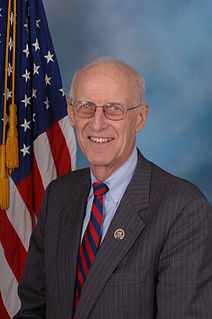A Quote by Robert Zubrin
Nothing could do more to help the world's poor than to make fossil fuels cheap and plentiful.
Related Quotes
We should certainly not be perpetuating further harm to others or to the environment. Suppose that workers at ExxonMobil are trying to unionize. We have two choices: to help them improve their lives, or to keep away so that their lives will be worse. Neither choice has any effect on use of fossil fuels. So radical organizers can both help them unionize and improve their lives, and convince them to find a different way to survive and work for ending the use of fossil fuels.
We could replace people with fossil fuels, have higher and higher levels of industrialization, of agriculture, of production, without thinking of the green-house gases we were admitting, and climate change is really the pollution of the engineering paradigm, when fossil fuels drove industrialism. To now offer that same mindset as a solution is to not take seriously what Einstein said: that you can't solve the problems by using the same mindset that caused them.
We are entering a hyperconnected world where every boss now has more access, cheap access to cheap labor, cheap genius, cheap robot, cheap software, and then this world averages over. There is only one answer to that, and that is to get everyone as close as possible to some form of post-secondary education, it could be vocational, it can be liberal arts, it can be science and technology.
The true cost of the pollution that is being dumped into the atmosphere and manifests itself in our sick children dealing with asthma or older folks dealing with heart and lung disease from the pollutions created by the burning of these fossil fuels, may not be reflected in the prices of fossil fuels, but that does not mean we aren't paying a high price for them.





































